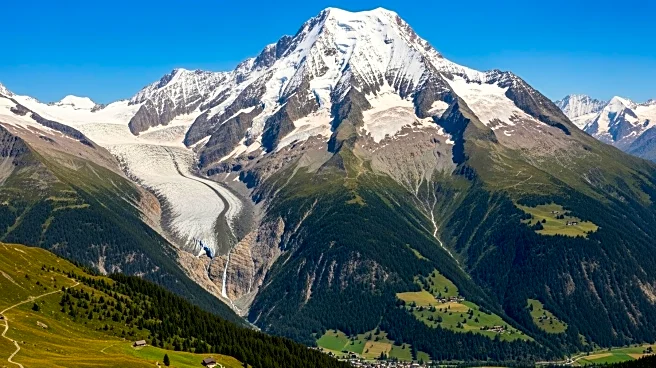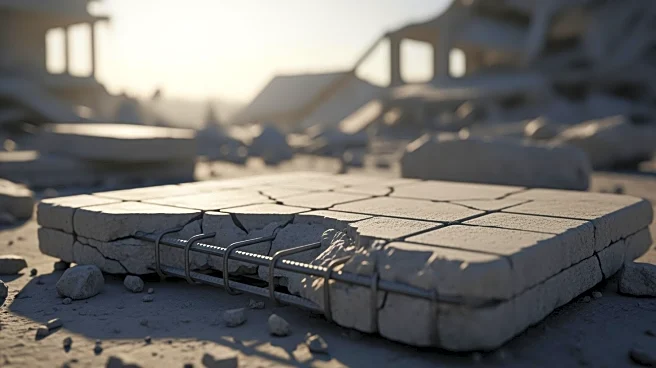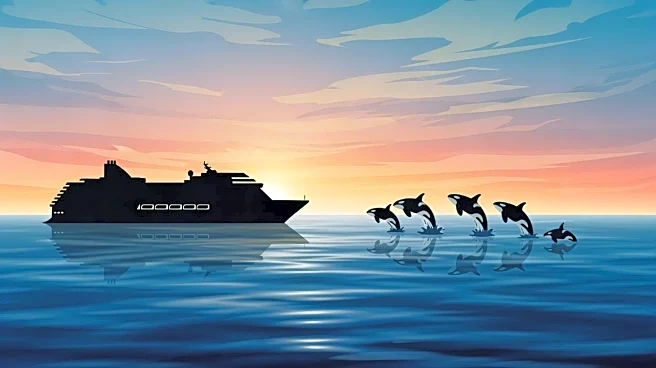What is the story about?
What's Happening?
The Swiss Alps are experiencing accelerated glacier melt, losing nearly two-thirds of their ice over the past century. This phenomenon is impacting Europe's major rivers, which rely on glacier melt for summer water flow. The Birch Glacier in Switzerland recently caused a landslide, leading to the evacuation of the village of Blatten. Scientists attribute these changes to climate change, noting that glaciers are shrinking rapidly, affecting water sources for rivers like the Rhine and Rhone. The decline in glacier volume is altering river ecosystems and economic activities dependent on these waterways.
Why It's Important?
The accelerated melting of glaciers in the Swiss Alps poses significant risks to European villages and economies. Glaciers serve as natural water towers, providing essential water flow during dry summer months. Their decline threatens the stability of major rivers, impacting industries reliant on these waterways for transportation and resources. The situation underscores the broader implications of climate change, highlighting the need for adaptive strategies in water management and infrastructure. As glaciers continue to recede, the economic and ecological balance in Europe faces unprecedented challenges.
What's Next?
Continued monitoring and research are essential to understand the full impact of glacier melt on European rivers and communities. Scientists are likely to focus on developing strategies to mitigate the effects of reduced water flow, including innovations in water transport and conservation. Policymakers may need to address the long-term implications for industries and communities dependent on these water sources. The situation calls for increased international cooperation to tackle climate change and its effects on natural resources.
Beyond the Headlines
The ethical and cultural dimensions of climate change are becoming increasingly apparent as communities face displacement and economic disruption. The loss of glaciers also affects cultural heritage sites and traditional ways of life in alpine regions. Long-term shifts in climate patterns could lead to more frequent and severe weather events, necessitating a reevaluation of environmental policies and conservation efforts.















